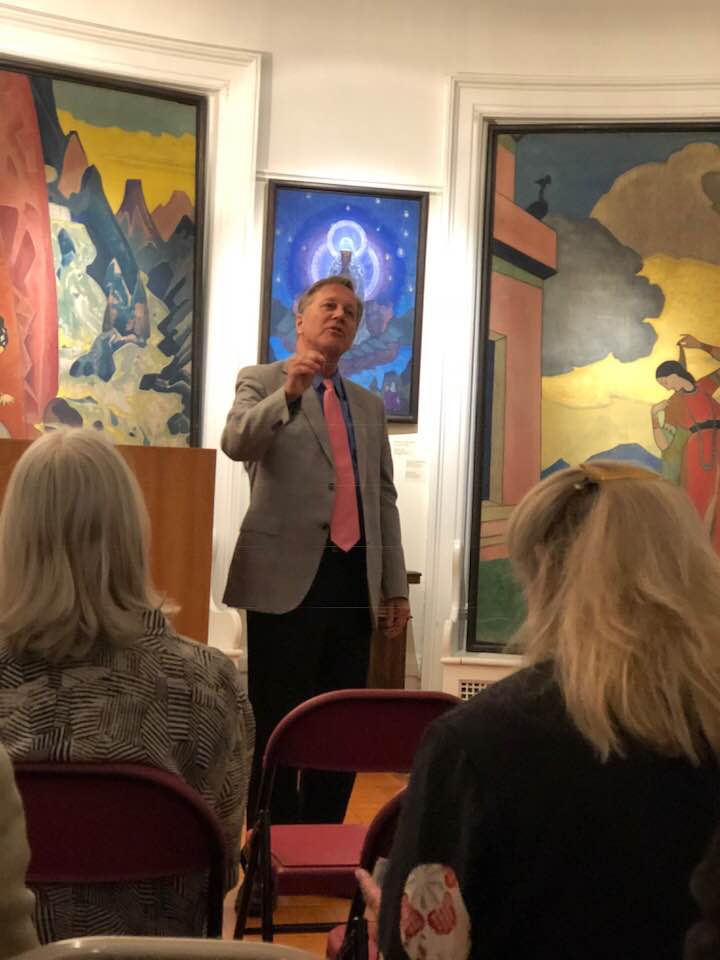Why is light verse in disfavor? The crusade to save it.
Friday, March 29th, 2019One of our favorite fellow bloggers, Patrick Kurp of the highly (and justly) respected Anecdotal Evidence, has a article on light verse in the Los Angeles Review of Books. It makes a thoughtful, rewarding read, recognizing in particular Light, the biannual journal founded by a retired Chicago postal worker, John Mella.
One of his goals, Patrick writes, was “to salvage verse from what he called the ‘cheerless, obscure, and finally forgettable muck’ of poetry written by and for academics.” The journal was launched in 1992 and has become a modest literary industry of its own, continuing after his death in 2012. It’s all online now, here.
There has long been a prejudice against light verse in such magazines as The New Yorker, that used to champion the wit and wisdom of Dorothy Parker, the sparkle of Ogden Nash. “It’s a shame the sophisticated humor in its cartoons can no longer be found in its poetry, which is fairly dreary and has been for years,” according to R.S. Gwynn (we’ve written about him here and here). “Maybe the magazine is too high-minded to think that poetry can entertain.”
It’s a commonplace attitude, writes Kurp, that light verse “kids’ stuff, doggerel, greeting-card fodder, unhappy echoes of Richard Armour, whose whimsical riffs appeared in Sunday newspaper supplements starting in the Great Depression. Definitions of light verse are notoriously slippery.”
We’ve written about X.J. Kennedy here and here. Kurp calls him “the éminence grise of American light verse.” His poem “The Purpose of Time Is to Prevent Everything from Happening at Once” is one of my all-time favorites of the genre, and I tend to repost it everywhere on his birthday. (He just turned 89 on August 21.)
According to A.M. Juster (we’ve written about him here and here), who is quoted in the article: ““Light verse has to deal with the timeless issues the way that Martial, Horace, Swift, Byron, Dorothy Parker at her best, and Wendy Cope do, to have any longevity at all. Just wordplay and/or inside jokes on the issues of the day doesn’t last. Dialect poems, which were also popular in the first half of the 20th century, went almost immediately from funny to the elite to offensive to everyone.”
Athens-based A.E. Stallings, a MacArthur Fellow and translator of Hesiod and Lucretius, recalls her early publication in Light, and her interactions with Mella, “I was often less successful in placing poems I truly considered ‘light’ verse with Light,” she says. “Rather, [Mella] seemed to like darker things with music to them. It was often a place where I would send in things that were quite polished, but perhaps didn’t have the scope or gravitas for a ‘serious’ magazine. But light verse requires a great deal of polish. It can be harder to turn out a perfect squib than a publishable page-and-a-halfer, the typical form around the millennium.” It seems to have paid off: read the moving short poems on the refugee crisis, which seem to draw their conciseness from some of her work in a lighter genre.
Discussing a poem by Barbara Loots, Patrick writes:”Deflation — reducing human vanity to its ridiculous or distasteful essentials — is a frequent strategy of light verse. Loots’s poem starts as the 10-thousandth Robert Burns parody and quickly turns Swiftian and more substantial. Critics risk killing the patient when dissecting light verse (or dissecting any kind of humor), but one can’t imagine Loots’s poem written as free verse.” Here’s her matchless “Colonoscopy: A Love Poem”:
My love is like a red, red rose.
I know because I’ve seen
the photographs inside of him
projected on a screen:
the petal-like appearance of
his proximal transverse,
his mid-ascending colon
like a rose’s opening purse,
appendiceal orifice,
a bud not yet unfurled —
Oh, what a pleasing garden is
my true love’s inner world!
How very like a red, red rose
his clean and healthy gut.
I love my laddie all the more
since looking up his butt.








 Was
Was 
 “Paper? Plastic?” croons the checkout.
“Paper? Plastic?” croons the checkout.
 Note the order in which Wilbur describes composition: “fishing” for rhymes, sorting them, winnowing, rejecting most, all the while remembering the “direction and object” of the poem. A good rhyme isn’t the snap of a lock but a key to open the imagination. The ability to write first-rate poetry, like the gifts for mathematics and music (composition and performance), is a freakishly rare combination of rigor and openness. Few have been so lavishly gifted as Wilbur. Tin-eared critics will dismiss rhyme as handcuffs, something artificial to bind the imagination. On the contrary. When Wilbur likens rhyme to a psychologist’s parlor game, he’s not suggesting repressed memories and the unleashing of buried anguish and guilt. Music goes deeper than that. So melodic are some of Wilbur’s poems, so gracefully arranged, one might be tempted not merely to read his lines but intone them, as in these from “A Black Birch in Winter” (The Mind-Reader: New Poems, 1976): “Old trees are doomed to annual rebirth, / New wood, new life, new compass, greater girth.” Ella Fitzgerald would sing this bouncily, allegro moderato, with light stress on the nouns.
Note the order in which Wilbur describes composition: “fishing” for rhymes, sorting them, winnowing, rejecting most, all the while remembering the “direction and object” of the poem. A good rhyme isn’t the snap of a lock but a key to open the imagination. The ability to write first-rate poetry, like the gifts for mathematics and music (composition and performance), is a freakishly rare combination of rigor and openness. Few have been so lavishly gifted as Wilbur. Tin-eared critics will dismiss rhyme as handcuffs, something artificial to bind the imagination. On the contrary. When Wilbur likens rhyme to a psychologist’s parlor game, he’s not suggesting repressed memories and the unleashing of buried anguish and guilt. Music goes deeper than that. So melodic are some of Wilbur’s poems, so gracefully arranged, one might be tempted not merely to read his lines but intone them, as in these from “A Black Birch in Winter” (The Mind-Reader: New Poems, 1976): “Old trees are doomed to annual rebirth, / New wood, new life, new compass, greater girth.” Ella Fitzgerald would sing this bouncily, allegro moderato, with light stress on the nouns.


